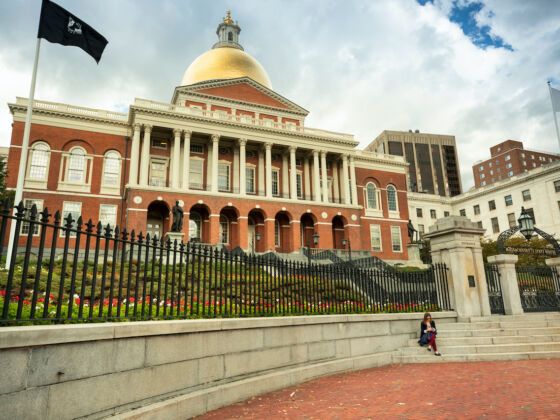This is The Climate Win, the most positive sustainability news around the world every week.
Last year Massachusetts’ Republican Governor Charlie Baker kicked off an ambitious goal to get the state to net-zero emissions by 2050. That goal became a formal plan this week and appears headed to Baker’s desk for signature, according to local outlet WBUR, after state lawmakers penned a legal agreement that both parties signed onto.
